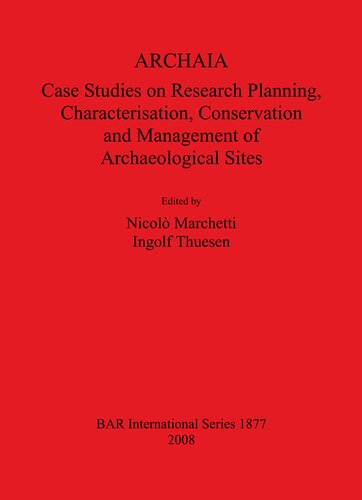

Most ebook files are in PDF format, so you can easily read them using various software such as Foxit Reader or directly on the Google Chrome browser.
Some ebook files are released by publishers in other formats such as .awz, .mobi, .epub, .fb2, etc. You may need to install specific software to read these formats on mobile/PC, such as Calibre.
Please read the tutorial at this link: https://ebookbell.com/faq
We offer FREE conversion to the popular formats you request; however, this may take some time. Therefore, right after payment, please email us, and we will try to provide the service as quickly as possible.
For some exceptional file formats or broken links (if any), please refrain from opening any disputes. Instead, email us first, and we will try to assist within a maximum of 6 hours.
EbookBell Team

4.8
104 reviewsThat field archaeological research and the conservation of ancient remains are inseparable actions is now a commonly shared opinion. However, in practice this consensus does not come with a check-list of shared protocols which can help in identifying the best possible solutions in each case. The ways of presenting a site to the public are often conceived a posteriori, after the completion of an archaeological project and without taking advantage of all the data produced by secondary studies and analysis of the excavated materials. Field archaeologists have long been confronted by these problems and this work is the result of a symposium on the topic, now known as the ARCHAIA project, held by group of colleagues from the Universities of Bologna, Copenhagen and Zadar, to which some other key speakers were added. This book contains the results of their joint efforts in highlighting what they think may be some of the most promising avenues for future practice and research.